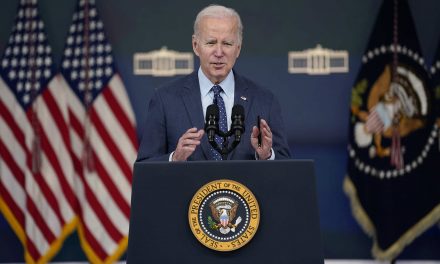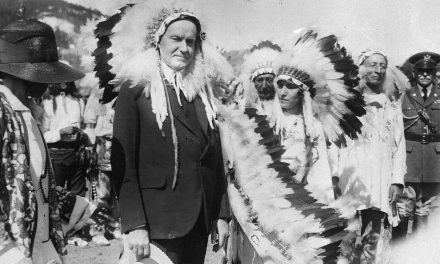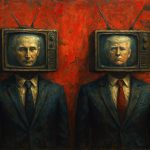
On March 16 in Georgia, a gunman murdered 1 man and 7 women, at three spas, and wounded another man. All three of the businesses were operating legally, according to Atlanta Mayor Keisha Lance Bottoms, and had not previously come to the attention of the Atlanta Police Department, although all three had been reviewed by an erotic review site. The man apprehended for the murders was 21-year-old Robert Aaron Long, who is described as deeply religious. Six of the women killed were of Asian descent.
At the news conference about the killings, on the following day – March 17, the sheriff’s captain who was acting as a spokesman about the case, Jay Baker, told reporters that Long was “pretty much fed up and kind of at the end of his rope. Yesterday was a really bad day for him, and this is what he did.” The spokesman went on to say that the suspect “apparently has an issue, what he considers a sex addiction,” that had spurred him to murder, and that it was too early to tell if the incident was a “hate crime.” Long told law enforcement officers that the murders were “not racially motivated.” He was, he said, trying to “help” other people with sex addictions.
Journalists quickly discovered that Baker had posted on Facebook a picture of a shirt calling COVID-19 an “IMPORTED VIRUS FROM CHY-NA.” As Baker’s Facebook post indicated, the short-term history behind the shooting is the former president’s attacks on China, in which he drew out the pronunciation of the name to make it sound like a schoolyard insult.
The story behind Trump’s attacks on China was his desperate determination to be reelected in 2020. In 2018, the former president placed tariffs on Chinese goods to illustrate his commitment to make the U.S. “a much stronger, much richer nation.” The tariffs led to a trade war with China and, rather than building a much stronger nation, resulted in a dramatic fall in agricultural exports. Agricultural exports to China fell from $15.8 billion in 2017 to $5.9 billion in 2018.
To combat the growing unrest in the agricultural regions of the country, where farm bankruptcies grew by nearly 20% in 2019, Trump paid off farmers hurt by the tariff with subsidies, which made up more than one third of U.S. farm income in 2020. In June 2019, he also begged Chinese President Xi Jinping to help him win the 2020 election. He told him that farmers were important to his election prospects, and begged Xi to buy more soybeans and wheat from U.S. farmers.
In January 2020, Trump and Chinese Vice Premier Liu He signed a deal that cut some U.S. tariffs in exchange for Chinese promises to buy more agricultural products, as well as some other adjustments between the two countries. On January 22, Trump tweeted: “One of the many great things about our just signed giant Trade Deal with China is that it will bring both the USA & China closer together in so many other ways. Terrific working with President Xi, a man who truly loves his country. Much more to come!”
But, of course, the novel coronavirus was beginning to ravage the world. On January 24, Trump tweeted: “China has been working very hard to contain the Coronavirus. The United States greatly appreciates their efforts and transparency. It will all work out well. In particular, on behalf of the American People, I want to thank President Xi!”
Five days later, at a signing ceremony, he said: “I think our relationship with China now might be the best it’s been in a long, long time.”
On February 7, Trump called journalist Bob Woodward and said of the coronavirus, “This is deadly stuff. You just breathe the air and that’s how it’s passed…. It’s also more deadly than even your strenuous flu.” Still, on February 10, he told supporters in New Hampshire that the coronavirus would “miraculously” go away when the weather got warmer, and in mid-February, he defended Xi’s handling of the epidemic, saying China was working hard and “doing a very good job” and that they “have everything under control.”
Shortly after the U.S. shut down to combat the pandemic in mid-March, Trump began to turn on China. On March 22, after 33,000 Americans had tested positive for the virus and 421 had died of it, Trump seemed to think better of his praise for Xi. He insisted that China had not told him about the deadly nature of the virus, and began to call it the “Chinese virus,” or the “Chy-na virus.”
By April 17, a Republican strategy document urged candidates to deflect attention from the nation’s disastrous coronavirus news by attacking China, which “caused this pandemic by covering it up, lying, and hoarding the world’s supply of medical equipment…. China… has stolen millions of American jobs, [and] sent fentanyl to the United States.” Democrats would not stand up to China, the document told Republican candidates to say, but “I will stand up to China, bring our manufacturing jobs back home, and push for sanctions on China for its role in spreading this pandemic.”
In May, Trump announced the U.S. would leave the World Health Organization because it had been too easy on China in the early days of the pandemic.
To undercut his own association with China, Trump somewhat nonsensically tried to link his Democratic opponent, Joe Biden, to China. He claimed—falsely—that China had paid Biden’s son, Hunter, $1.5 billion. He and his appointees Director of National Intelligence John Ratcliffe, Attorney General William Barr, and National Security Advisor Robert O’Brien, all claimed—again falsely– that China was interfering in the election to help Biden.
This week, the intelligence community reported that, in fact, China did not try to influence the election because it did not “view either election outcome as being advantageous enough for China to risk getting caught meddling.”
As Trump politicized the pandemic and attacked China, hate crimes against Asian-Americans began to rise; there were about 3800 of them between March 19, 2020 and February 28, 2021. In cities, hate incidents increased by 150%.
In this context, the suggestion of a police spokesman who had posted pictures celebrating a shirt that called Covid-19 the “VIRUS IMPORTED FROM CHY-NA” that a gunman had killed six women of Asian descent because he had had “a really bad day,” along with the officer’s apparent acceptance of Long’s statement that the killings were not racially motivated, outraged observers.
That seemingly cavalier dismissal of the dead while accepting the words of the white murderer seemed to personify an American history that has discriminated against Asians since the California legislature slapped a Foreign Miners’ Tax on Chinese miners in 1850, just a year after they began to arrive in California. Discriminatory laws and violence from their white neighbors plagued Chinese, Japanese, Hawaiians, Pacific Islanders, Koreans, Vietnamese, and all Asian immigrants as they moved to the United States. Discrimination and hatred have continued to plague their descendants.
The rise in anti-Asian violence has been so bad this year that a subcommittee of the House Judiciary Committee had planned a hearing on March 19 regarding hate crimes against Asian Americans even before the murders. Representative Doris Matsui (D-CA) condemned the recent uptick in violence, but pointed out that discrimination is hardly new. “There is a systemic problem here,” she said. Of Japanese descent, she noted that she was born during WWII in an internment camp in Arizona.
Asian American women have borne a dual burden of both racism and sexism, as certain men fetishize Asian and Asian American women, seeing them as submissive, exotic, and sexually available. Attackers aimed nearly 70% of the reported 3,800 hate incidents reported last year at women. That Long blamed Asian or Asian American women for his own sexual impulses ties into a long history that links racism to sexism — and to violence — in a peculiarly American fashion.
- Milwaukee residents hold vigil by City Hall to demand an end of the violence targeting Asian Americans
- Hate crimes against Asian Americans began to rise as Trump politicized the pandemic and attacked China
- Atlanta spa shootings by White gunman appears to intersect gender-based violence, misogyny, and xenophobia
- State and local leaders in Wisconsin condemn targeted attack on women of Asian descent in Georgia
- Community advocates in Milwaukee join with statewide coalition to denounce violence against AAPI women
- Stop AAPI Hate: Report documents surge of racially motivated attacks against Asian Americans
- What’s past is prologue: When the rhetoric of hate lives on in the monsters MAGA culture makes
- The “Melting Pot” Narrative: Why America’s history of migration coexisted with xenophobia
Letters from an Аmerican is a daily email newsletter written by Heather Cox Richardson, about the history behind today’s politics














